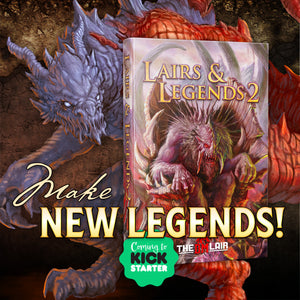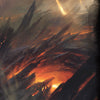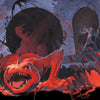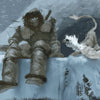8 Types of Notes Every Dungeon Master Should Take
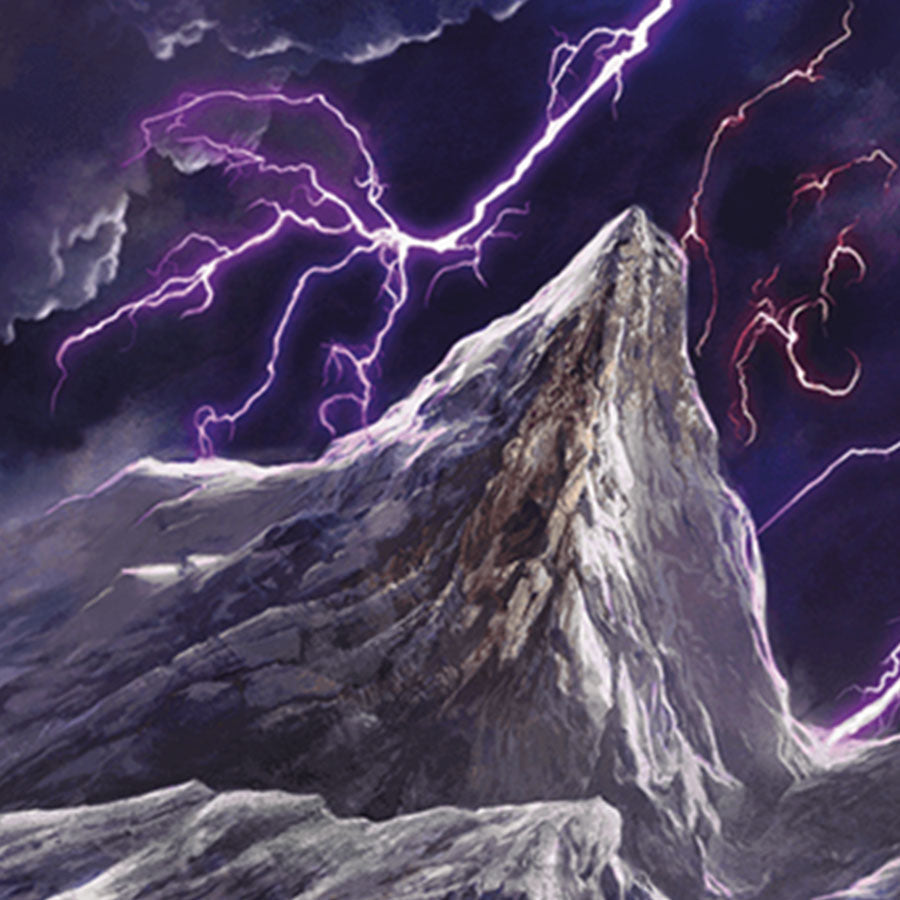
By Luke Hart
Today, we’re diving into a surprisingly powerful topic: dungeon master note-taking.
Yeah, it might not sound flashy at first—but trust me, mastering how you take notes can completely change how smooth and immersive your games feel. I’m going to walk you through the eight types of notes I take for every campaign I run and explain why each one makes my DM life easier (and my players’ experience better).
Because, let’s face it, your memory will fail you. Even if you only run one campaign, keeping all the details straight between sessions is tough. And if, like me, you’re juggling multiple groups? Notes become your lifeline.
By the way, are you a NEW GAME MASTER feeling a bit overwhelmed by everything involved with running a role-playing game? If so, the Secret Art of Game Mastery can help. Get over 100 years of GM experience distilled into practical, easy-to-read advice.
Watch or listen to this article by clicking the video below.
1. Calendar Notes
This is the backbone of my note system. I track in-game dates and time for every session. That might sound tedious, but it pays off big time when it comes to consistency and immersion.
Here’s what I record:
- The current in-game date and time
- Ongoing effects (spells, diseases, curses, etc.)
- Major events that have happened—or that will happen soon
- Downtime periods and level-ups
- Player actions that affect the world over time
For example, in my campaign set during the month of Marpenoth, I’ve got notes like:
- The party’s mayordomo’s activities back at Trollskull Manor
- When the group took their last long rest
- Which day a character sent a magical paper bird message to his family
- Ongoing resurrection side effects from a raise dead spell
- And notes about their growing franchise and what’s happening with it
When you log details like this in a campaign calendar, you start seeing the flow of the story. It makes planning future sessions easier and helps you keep the passage of time meaningful for your players.
2. Keep a Session Journal
This is your session-by-session memory bank. After every game, I write a short summary of what actually happened—just enough to remind me next time what the group did, where they ended, and what loose ends they left behind.
Here’s what my entries typically include:
- The date and time in-game
- The location of the party
- A quick rundown of key events and encounters
- Any active effects or spells (like “Fizzletock’s mage armor lasts until 4:00 PM”)
- Notes on what the group is currently doing or discussing
Then, after the game, I take a few minutes to write “session end” notes: what monsters they defeated, which NPCs they interacted with, and any story developments that occurred.
Pro tip:
Do this immediately after your session—before you forget the details. Future You will thank Present You.
3. Session Planning Notes
Now, this is different from full adventure prep.
Session planning notes are high-level outlines—the main beats or events you expect to happen in the next session. Think of them as bullet points for the world’s planned reactions to the players’ actions.
Example from my Curse of Strahd campaign:
- The Vistani family in Krezk faces a tragedy.
- The Abbot raises a boy from the dead—on the condition that the players help him secure a bridal gown.
- The group investigates the Abbey and encounters its dark secrets.
These are just the story beats. The module or adventure holds the detailed maps, loot, and mechanics.
This list helps me run the session confidently without flipping through pages every few minutes.
4. Future Plot Points
This one’s huge: keep a running list of consequences.
Every time your players make a major decision, jot down potential outcomes or reactions that could occur later. These don’t all have to happen, but when you need inspiration, they’ll give you ready-made plot hooks tied directly to the group’s past choices.
From my Ancient Dragon campaign, for instance:
- The Orphans & The Horse: The group’s beloved horses were left behind. Someday, that might come back to bite them.
- The Mad Titan: They woke up a sleeping Titan tied to an ancient god. The world might not take that lightly.
- Betinna Still of the White Tree: A rescued sea hag owes them a favor; one that could evolve into a whole new arc.
- Favor Owed to the Temple of Tyr: Someone got raised from the dead on a “discount.” The temple might come collecting later.
Not all of these will become adventures—but they’re gold when you want to make the world feel alive and responsive.
5. Level Tracking
Simple but important: write down when the party levels up.
Tracking level progression helps you maintain pacing. I prefer to level my groups every three or four sessions. That gives them time to enjoy their new abilities, test them out, and feel the growth before advancing again.
If you only play twice a month, that rhythm takes about three years to reach level 20—and that’s a satisfying campaign arc for most groups.
6. A To-Do List
This is your DM prep checklist—just a list of what you need to do before the next session.
It could be anything from “create a new NPC stat block” to “build out a player’s character arc.”
Example from my notes:
- “Write the next adventure for Group 3.”
- “Prep for the paladin’s redemption arc.”
Sometimes those notes go obsolete—especially if that paladin dies (which… happens). But this keeps me organized and prevents that dreaded moment when I sit down to run and realize I forgot to prep something important.
7. Downtime Activities
Players love downtime—and some take it very seriously. So, when they craft, research, or build things, keep track of their progress and results.
For example, one of my players, Relictus, wanted to craft a custom magic item. Together, we broke down the process into stages:
- Research the recipe.
- Locate rare ingredients.
- Gather them through quests or trade.
- Craft the item during downtime.
I used a simple checklist in my notes to track his progress across sessions. That made the process feel structured and meaningful without bogging down the game.
8. Game World Notes
Finally, keep track of your NPCs, factions, and world changes. When you improvise, jot those details down so you can stay consistent later. If the group befriends a minor shopkeeper or angers a local thieves’ guild, record it—you never know when that relationship will become relevant again.
Also note world changes caused by player actions:
Cities rebuilt, enemies defeated, alliances formed. This reinforces the idea that your campaign world evolves around your players’ choices—and that’s what makes a tabletop world feel real.
100 Years of GM Experience at Your Fingertips!
Are you a NEW GAME MASTER feeling a bit overwhelmed by everything involved with running a role-playing game? Are you a VETERAN GAME MASTER looking for new tips and tricks to take your games to the next level? Look no further than the Secret Art of Game Mastery.
We at the DM Lair have distilled our CENTURY of accumulated GM experience into an easy-to-read guide of practical advice that you can immediately apply to your games! We've even included our own templates–the things that we use to prepare our ACTUAL games.
Get all three books to master your game:
- The Secret Art of Game Mastery. Contains over 100 years of GM advice distilled into an easy-to-read format. It introduces and explains the tools of the trade, scheduling, playstyle, post-game notes, getting player feedback, and more.
- The Secret Art of Preparation. Brings to your fingertips the actual templates and guides that the DM Lair team uses to prepare games, Lair Magazine, and more. Designed as a three-ring binder, it's intended for you to write directly into for your entire campaign!
- The Secret Art of Notetaking. Gives you the keys to tracking your campaign from session to session just like the DM Lair team. Designed as a three-ring binder, it's intended for you to write in and keep track of your whole campaign!
With so much knowledge and experience on its pages, The Secret Art of Game Mastery is guaranteed to become an indispensable tool for all game masters, new and veteran alike. And if that isn’t enough, the information applies to all game systems and all genres!
-
Posted in
Game Master How-To Articles



